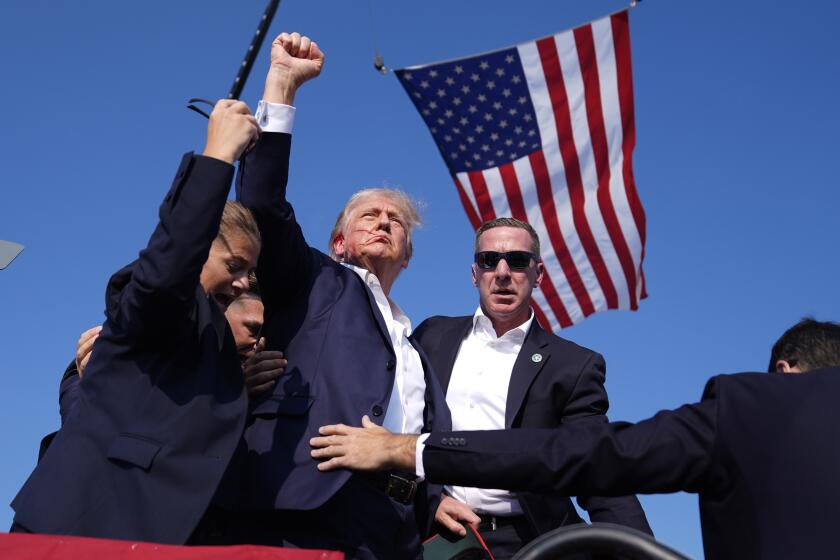Senate panel OKs healthcare overhaul
The Senate Health Committee, approving major healthcare legislation for the first time in 15 years, put forward a sweeping plan Wednesday to provide nearly every American with insurance regardless of income or medical condition and to create a government program to compete directly with private insurers.
The bill also would place new requirements on many employers to provide coverage.
The committee vote, along strict party lines, marked what President Obama called “a major milestone” in his bid to revamp the healthcare system. But there were signs that the debate was moving into a more bruising phase in which insurance companies, hospitals and others fight to shape the details of legislative provisions that affect them.
California hospitals and insurers issued sharp warnings that a government insurance program could jeopardize patient care. And leading business organizations, many of which have been pushing for a healthcare overhaul, have stepped up their attacks on similar legislation that House Democrats introduced this week.
“It is clear that . . . hospitals will not be able to maintain the level of services that they do today,” California Hospital Assn. president Duane Donner said Wednesday.
And the National Federation of Independent Business, a conservative small-business group that is influential in the House, sent a letter to lawmakers saying that the bill “threatens the viability of our nation’s job creators . . . , destroys choice and competition for private insurance and fails to address the core challenge facing small business -- cost.”
But the dire predictions were contradicted by a preliminary Congressional Budget Office assessment of the public insurance option contained in the House bill. The CBO estimated that by 2019, just 9 million people would get their insurance from the government plan, while more than 175 million people would get their coverage from private insurers.
House Energy and Commerce Committee Chairman Henry A. Waxman (D-Beverly Hills), a lead author of the healthcare bill, brushed aside the complaints of the small-business group and the U.S. Chamber of Commerce, both of which had proclaimed their support for a healthcare overhaul in the earlier phase.
“They are against everything,” Waxman said. “They don’t want a healthcare bill.” Waxman’s comment reflected the fact that, as lawmakers push to get bills through the House and Senate by their August recess, liberal Democrats are becoming less tolerant of dissent from their supposed allies in the healthcare industry.
Senior Senate Democrats took aim at insurers Wednesday, threatening to assess them a new fee to help offset the cost of covering millions of people now without coverage. New York Sen. Charles E. Schumer, the Senate’s No. 3 Democrat, said the finance committee -- which is at work on its own legislation -- could seek as much as $100 billion from the industry.
And Sen. John. D. Rockefeller IV (D-W.V.) said, “The insurance companies are the people who are just rapaciously, greedily, unstoppably making money by underpaying the patient, underpaying the provider and by overpaying . . . themselves.”
Obama continued to lobby for at least some Republican support, meeting privately Wednesday with a group of GOP senators that included Lisa Murkowski of Alaska, Bob Corker of Tennessee and Saxby Chambliss of Georgia.
But after months of stressing the need for negotiation, the president also hit back at critics for a second straight day, saying the public insurance option “would make healthcare more affordable by increasing competition, providing more choices and keeping insurance companies honest.”
And the president’s independent political operation upped the ante by launching television ads against members of his own party who have expressed skepticism about his approach to healthcare.
On Wednesday, Organizing for America, a vestige of the formidable grassroots operation that helped Obama win the 2008 election, began running a 30-second TV commercial in eight states that are home to such Democrats.
At a news conference, Sen. Ben Nelson (D-Neb.), who has voiced worries about the public insurance option and is being targeted with the ads, brushed them off. “The ads won’t affect me,” he said. “It helps the broadcast industry.”
Karen Ignagni, who heads America’s Health Insurance Plans, the industry’s lobbying arm, said insurers would continue to work with lawmakers and the administration on healthcare legislation.
“Our members were the first ones up,” she said, noting the industry’s support for new insurance regulations to guarantee coverage.
But AHIP is working to highlight what it says would be billions of dollars in lost revenue for California’s hospitals should large numbers of Californians trade their commercial insurance for a government plan that pays providers less.
House committees are beginning to mark up their legislation this week.
--
peter.nicholas@latimes.com
More to Read
Get the L.A. Times Politics newsletter
Deeply reported insights into legislation, politics and policy from Sacramento, Washington and beyond. In your inbox three times per week.
You may occasionally receive promotional content from the Los Angeles Times.











